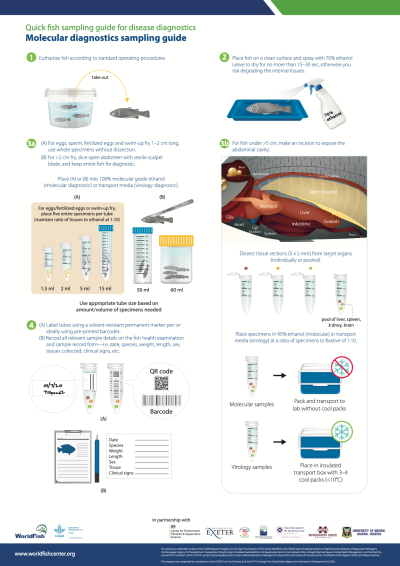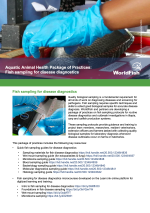Quick fish sampling for disease diagnostics: Molecular diagnostics sampling guide
31 January 2024 | Delamare-Deboutteville, J., Ali S.E.S.M., and Chadag V.M. | 146 Downloads | .pdf | 8.72 MB | Health and welfare
Major pathogens of fish and other farmed aquatic animals include bacteria, fungi, viruses and parasites. These can lead to serious infectious diseases and losses representing one of the major limitation to sustainable aquaculture.
Routine health checks for key priority pathogens of tilapia, carp and catfish—will vary with geographies—are important to minimize the risk of their introduction, transmission and spread. On suspicion of an unknown disease during abnormal mortalities, it is routine for the investigators to collect clinical samples from moribund fish for molecular and virology diagnostics.
Molecular diagnostics are techniques used to amplify small DNA/RNA sequence(s) that are unique to a particular pathogen to ascertain their presence or absence. Virology is a branch of microbiology that study viruses and viral diseases.
WorldFish and partners developed this quick fish sampling guide for molecular and virology diagnostics. Standard specimens for general molecular and virology health evaluation include kidney, liver, spleen, brain and gills. Other tissues may be collected.
A free online training course on molecular diagnostics and virology sampling is also available via Learn.ink.
Publisher: WorldFish
Rights: Creative Commons Attribution-NonCommercial.

